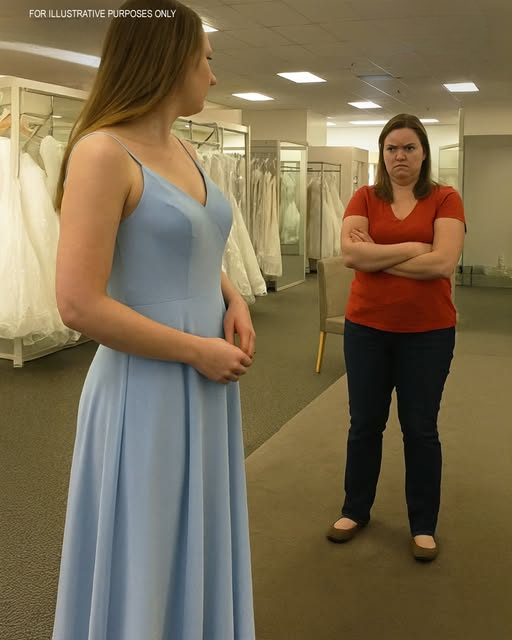
Friendships can be tested in unexpected ways, especially when wedding bells ring. For one woman, agreeing to be a bridesmaid for a college friend turned into a costly and emotionally draining experience, marked by rigid expectations, dismissive attitudes, and a fallout that left her questioning the value of the friendship. This is the story of how a joyful invitation spiraled into a clash over a dress, personal boundaries, and respect.
A Surprising Invitation
The woman, whom we’ll call Emily, hadn’t spoken to her college friend, Lauren, in years. They were close during their university days, sharing late-night study sessions and weekend adventures, but they weren’t best friends. So, when Lauren reached out with an invitation to be a bridesmaid, Emily was surprised but flattered. Thinking it could be a chance to reconnect and share in Lauren’s special day, she enthusiastically agreed.
The role came with expectations: a specific dress, shoes, and a commitment to attend multiple events. Emily, a healthcare worker, budgeted carefully and spent over $500 on the dress, shoes, and alterations, assuming it would be worth it for a friend’s happiness.
When Expectations Became Demands
As the wedding planning progressed, Emily began to feel less like a valued friend and more like a prop in Lauren’s vision. Lauren insisted all bridesmaids have identical long fake nails, false eyelashes, and even matching hairstyles to create a “cohesive look.” Emily, whose job in healthcare required short, practical nails, explained that long fake nails weren’t feasible. She hoped for understanding, but Lauren’s response was sharp and dismissive.
“Then maybe you’re not a fit for the bridal party,” Lauren snapped.
Stunned but calm, Emily replied, “Maybe I’m not.”
A few days later, Lauren texted Emily to say she was out of the bridal party but could still attend as a guest. Feeling hurt but practical, Emily asked if she could wear the non-refundable dress she’d already purchased, hoping to salvage some of the $500 investment. Lauren’s response was uncompromising: “Absolutely not. I don’t want any reminders of negativity at my wedding.”
A Breaking Point
Emily, trying to keep the peace, said she might not attend if she couldn’t wear the dress. Lauren doubled down: “Fine. Don’t come. But you’re also NOT allowed to wear it.” Confused, Emily pointed out that she had paid for the dress and could wear it elsewhere. Lauren’s reply was a mix of entitlement and indignation: “You couldn’t even follow simple instructions. That look belongs to my wedding.”
When Emily jokingly asked if Lauren wanted to buy the dress off her, Lauren scoffed: “Why would I pay for your leftovers?” The conversation ended there, with Emily realizing the friendship was no longer worth salvaging.
The Aftermath and a New Perspective
Two days later, Emily made a bold choice. She donated the dress to a local charity that provides formalwear for those in need, turning a painful experience into something positive. She chose not to attend the wedding, focusing instead on surrounding herself with people who valued her for who she was, not for how well she fit into their aesthetic.
Reflecting on the ordeal, Emily realized that weddings can bring out unexpected sides of people. She learned to set boundaries and recognize when a relationship no longer serves her. The experience, though costly, taught her the importance of self-respect and standing up to unreasonable demands.
A Lesson in Boundaries and Friendship
Emily’s story is a reminder that friendships, even those rooted in fond memories, can falter under the pressure of unrealistic expectations. Weddings are joyous occasions, but they can also reveal cracks in relationships when priorities clash. For anyone facing similar demands, Emily’s experience underscores the value of clear communication, mutual respect, and knowing when to walk away.